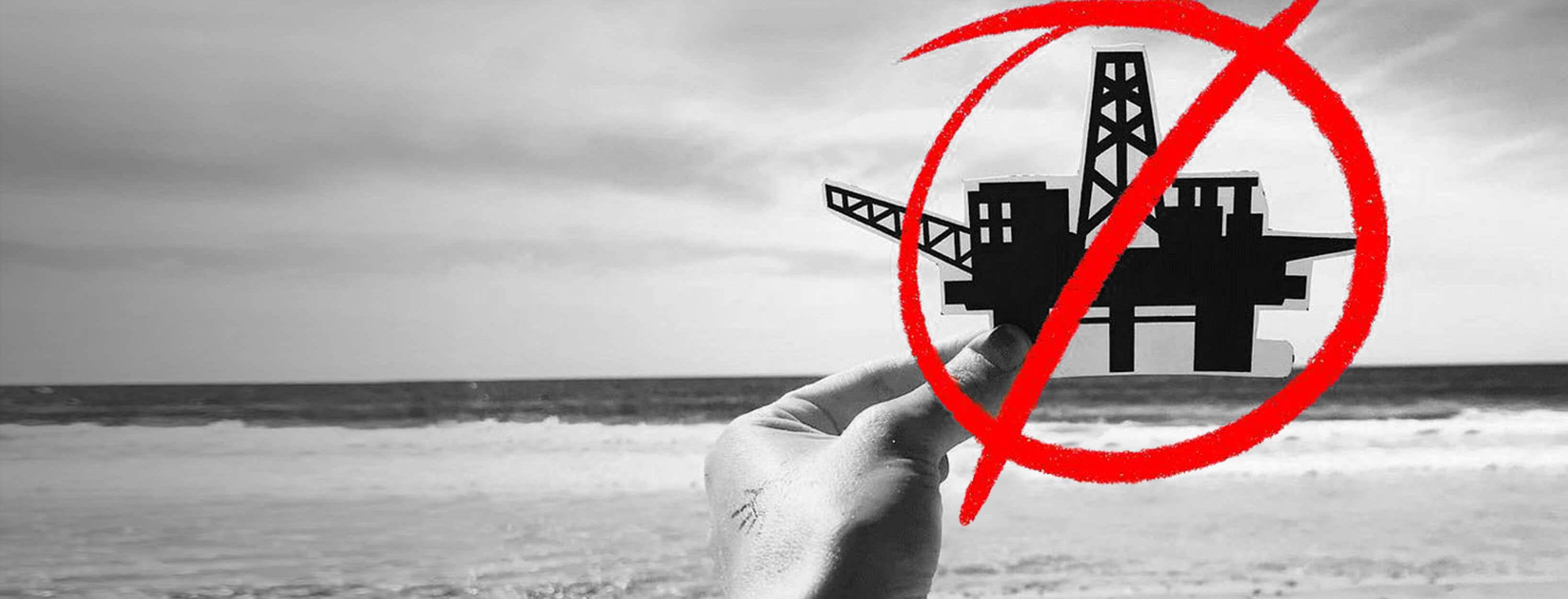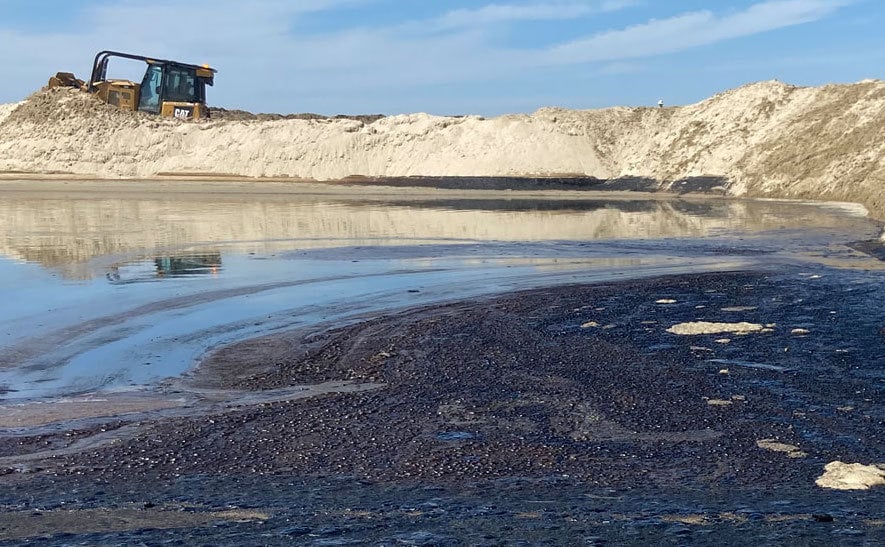
From California to the Gulf of Mexico, aging oil and gas infrastructure in U.S. waters poses a major threat to the environment and coastal communities.
On February 29, Surfrider Foundation joined the Center for Biological Diversity and seven other organizations in filing a legal petition demanding that the U.S. Department of Interior take action to safely decommission offshore drilling rigs that have reached the end of their lifespan. The petition calls on the agency to enact necessary reforms and enforce deadlines for thousands of old offshore oil wells and platforms that are overdue for decommissioning. Achieving the safe and timely decommissioning of such infrastructure will not only protect the environment and communities, it will also ensure that the oil and gas industry fulfills their legal responsibilities under federal law.
A recent report from the nonpartisan Government Accountability Office (GAO) revealed significant problems in federal oversight of aging offshore infrastructure. The GAO report found that more than 2,700 wells and 500 offshore oil and gas platforms had overdue decommissioning obligations in the Gulf of Mexico. The report also found that cleanup deadlines had been missed for more than 40 percent of wells and 50 percent of platforms by companies that held rights to drill in the Gulf from 2010 to 2022. For communities in the Gulf of Mexico and southern California, the GAO report was a confirmation of what has become increasingly evident: the industry is failing to meet its legal obligations to decommission rigs and the Interior Department is failing to hold such companies accountable.
In California, Surfrider has been pushing for the removal of old offshore oil and gas platforms for years. The 23 offshore drilling rigs off California were all constructed between 1967 and 1989 and are nearing, or have already reached, the end of their lifespan. In fact, eight oil and gas platforms off California already have terminated leases and no longer produce oil and gas. The other fifteen platforms are still operational but production levels are in decline. The presence of aging oil and gas infrastructure increases the risks of spills or other accidents, underscoring the need to remove these rigs from California’s coastline. In 2021, that risk was exposed by the Amplify Energy Oil Spill off Huntington Beach that spewed 25,000 gallons of oil into the ocean and caused significant harm to the environment, communities, businesses and the public.

The 2021 Amplify Energy Spill highlighted the risks of aging oil and gas infrastructure
In December of 2023, the Department of Interior published a plan for removing the 23 offshore oil and gas platforms and related pipelines off the California coast. The government’s proposal is a key step toward ending offshore drilling in the state and expelling an industry that has produced two major oil spills in the last eight years. The federal government’s plan analyzes different alternatives for decommissioning California’s oil rigs. These alternatives range from requiring the complete dismantling of the offshore oil platforms to options that would allow a portion of the rig to be left underwater contingent on demonstrated ecological value (a concept known informally as “rigs to reef”). This environmental impact statement will guide the removal of individual platforms in accordance with federal, state and local laws.
The Surfrider Foundation supports the timely and comprehensive decommissioning of aging offshore oil and gas infrastructure in U.S. waters.
Surfrider asserts that decommissioning of offshore oil and gas infrastructure must be carried out by responsible lease holders in full compliance with all environmental laws and regulations. Surfrider recognizes that California passed a law in 2010 that stipulates that the state may approve partial platform removal if it will “result in a net benefit to the marine environment compared to full removal.” All elements of this law must be followed, meaning that a careful scientific review should occur for each proposed project, and potential impacts and issues should be addressed through scientific study.
Safely decommissioning old oil and gas platforms will protect our environment, communities, businesses, and the public from the ongoing impacts of this damaging industry. Halting oil and gas production is also necessary to reduce greenhouse gas emissions that are driving climate change and which threaten the future viability of our planet. Please see the resources below and stay tuned for how you can help end new offshore drilling in U.S. waters.
Pacific OCS Decommissioning Page
